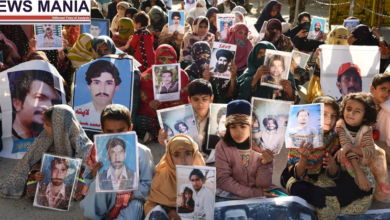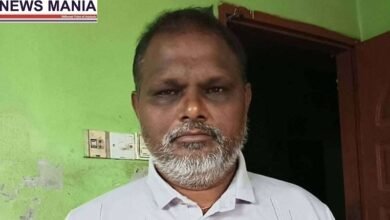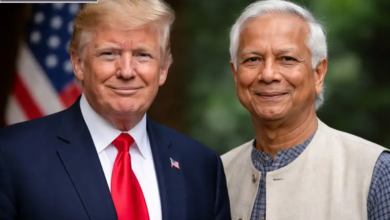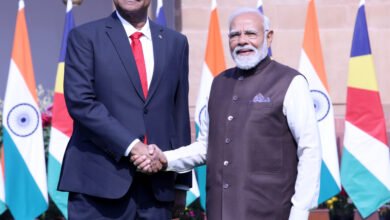US Military’s Secret Propaganda Campaign Against Chinese Vaccines in the Philippines During Covid-19

News Mania Desk/ Agnibeena Ghosh/16th June 2024
During the height of the Covid-19 pandemic, the US military conducted a covert operation aimed at undermining China’s growing influence in the Philippines, a nation severely impacted by the virus. This secret mission, recently uncovered by a Reuters investigation, sought to discredit the safety and efficacy of vaccines and other aid provided by China.
The operation, which had not been previously disclosed, involved the use of fake social media accounts impersonating Filipinos. These accounts propagated an anti-vaccine narrative, criticizing the quality of Chinese-made face masks, test kits, and the Sinovac vaccine, the first Covid-19 vaccine available in the Philippines. This campaign began under former President Donald Trump and continued for several months into Joe Biden’s presidency, despite social media executives warning the new administration about the Pentagon spreading Covid misinformation. In spring 2021, the Biden administration directed the Pentagon to halt the anti-vaccine campaign and initiated an internal review.
Reuters identified at least 300 accounts on X (formerly Twitter) that matched descriptions provided by former US military officials familiar with the operation. Many of these accounts were created in the summer of 2020 and frequently used the hashtag #Chinaangvirus, meaning ‘China is the virus’ in Tagalog.
One of the tweets from July 2020 read in Tagalog, “COVID came from China and the VACCINE also came from China, don’t trust China!” The tweet included a photo of a syringe next to a Chinese flag and a rising infection chart. Another post declared, “From China – PPE, Face Mask, Vaccine: FAKE. But the Coronavirus is real.”
Upon being informed by Reuters, X removed these accounts, identifying them as part of a coordinated bot campaign based on activity patterns and internal data.
The US military’s anti-vaccine initiative started in the spring of 2020 and extended beyond Southeast Asia, reaching Central Asia and the Middle East before being terminated in mid-2021. The campaign tailored its propaganda to local audiences, using fake social media accounts across multiple platforms to incite fear of China’s vaccines among Muslims. A key strategy was amplifying the controversial claim that vaccines containing pork gelatin might be forbidden under Islamic law.
The US military is prohibited from using propaganda to target Americans, and no evidence was found that the Pentagon targeted US citizens. Officials from both the Trump and Biden administrations did not respond to requests for comments regarding the clandestine program. A senior Defense Department official confirmed that the US military engaged in secret propaganda to discredit China’s vaccines in the developing world but refused to provide more details.
A Pentagon spokeswoman stated that the US military “uses a variety of platforms, including social media, to counter those malign influence attacks aimed at the US, allies, and partners.” She added that China had initiated a “disinformation campaign to falsely blame the United States for the spread of Covid-19.”
The Chinese Ministry of Foreign Affairs accused the US government of a long history of manipulating social media and spreading misinformation. The Philippine embassy in Washington did not respond to Reuters’ inquiries, but a spokesperson for the Philippines Department of Health commented that “findings by Reuters deserve to be investigated and heard by the appropriate authorities of the involved countries.” Some aid workers in the Philippines reacted with outrage upon learning about the US military’s propaganda effort.
Upon being briefed by Reuters about the Pentagon’s secret anti-vaccine campaign, American public health experts condemned the program, arguing it jeopardized civilian lives for potential geopolitical gains. Daniel Lucey, an infectious disease specialist at Dartmouth’s Geisel School of Medicine, stated, “I don’t think it’s defensible.” He expressed extreme dismay, disappointment, and disillusionment upon hearing that the US government would undertake such actions.
The US propaganda efforts further strained the situation in the Philippines, where then-President Rodrigo Duterte expressed frustration over low vaccination rates and threatened to arrest those who refused to get vaccinated. By June 2021, the Philippines had one of the lowest vaccination rates in Southeast Asia, with only 2.1 million out of its 114 million citizens fully vaccinated.
Some Filipino healthcare professionals and former officials were shocked upon learning about the US anti-vaccine effort. They believe it exploited an already vulnerable population. Lulu Bravo, executive director of the Philippine Foundation for Vaccination, noted that existing public concerns about vaccinations were exacerbated by the Pentagon’s campaign. Dr. Nina Castillo-Carandang, a former adviser to the World Health Organisation and the Philippine government during the pandemic, criticized the campaign, stating, “We don’t have our own vaccine capacity,” and that the US effort “contributed even more salt into the wound.”
The campaign also tapped into longstanding suspicions of China, aggravated by Beijing’s aggressive actions in disputed areas of the South China Sea. This skepticism contributed to reluctance among Filipinos to trust China’s Sinovac vaccine, available in the country since March 2021. Esperanza Cabral, a former health secretary, mentioned she was unaware of the US military’s secret operation but acknowledged the deep-rooted mistrust towards Chinese initiatives.






